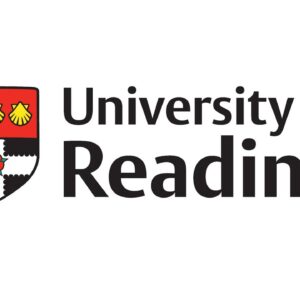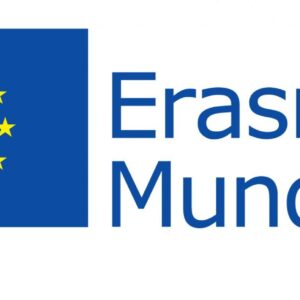Norway Undergraduate Scholarships for International Students
Introduction
Norway is renowned for its high-quality education system, free tuition at public universities, and a welcoming environment for international students. The country’s focus on equal educational opportunities extends to international students, making it an appealing destination for those seeking undergraduate studies abroad. Norway’s universities offer a wide range of programs in English, particularly at the undergraduate level, attracting students from all corners of the globe. Beyond academics, the stunning natural beauty and high quality of life make Norway a truly unique place to study.
While public universities in Norway typically do not charge tuition fees, international students still have to cover their living expenses, which can be high due to Norway’s cost of living. To mitigate these costs, many students apply for undergraduate scholarships. Scholarships not only ease financial burdens but also provide opportunities for academic recognition and professional networking. These scholarships are often awarded based on merit, financial need, or specific eligibility criteria, such as citizenship of developing countries.
The availability of scholarships for international students studying in Norway, combined with its tuition-free education system, makes the country one of the most affordable options for high-quality undergraduate education. In this guide, we’ll cover entry-level jobs for immigrants, visa requirements, post-study employment opportunities, and additional resources to help international students maximize their time in Norway.
Entry-Level Jobs for Immigrants
International students in Norway have the opportunity to work part-time during their studies. While full-time employment isn’t typically allowed during the academic year, students can work up to 20 hours per week. These entry-level jobs not only help students cover living expenses but also offer valuable experience and exposure to Norwegian culture and the workplace environment.
- Retail and Customer Service Retail jobs are common for international students in Norway. Working in supermarkets, clothing stores, or convenience shops allows students to develop their language skills, as well as learn about Norwegian consumer culture. These jobs typically require limited qualifications, and flexible shifts make them ideal for balancing work and studies.
- Hospitality and Tourism Norway’s thriving tourism industry creates job opportunities for international students, especially in cities like Oslo, Bergen, and Tromsø. Positions in hotels, restaurants, and cafés are readily available, especially during tourist seasons. Students often work as waiters, bartenders, or receptionists. While knowledge of Norwegian is a plus, many employers in the tourism sector operate in English, making these roles accessible to international students.
- Delivery and Driving Jobs With the rise of online shopping and food delivery services, there is a growing demand for delivery personnel. International students can find part-time jobs delivering food or parcels for companies like Foodora and Posten Norge. A driver’s license is often required, but many opportunities involve cycling or walking. These roles allow for flexible hours, making them suitable for students managing their academic workload.
- Tutoring and Educational Support For students excelling in academic subjects, tutoring can be a rewarding and flexible job option. Universities and private institutions often seek tutors to assist other students in subjects such as mathematics, science, and language studies. In addition to tutoring, international students may find opportunities to work as exam invigilators or library assistants. These roles not only provide income but also allow students to engage with the academic community.
While entry-level jobs for international students may not always be highly paid, they provide essential financial support, help build a professional network, and allow students to integrate more easily into Norwegian society.
Visa Requirements for Employment After Studies
For international students wishing to stay in Norway after completing their undergraduate studies, there are several visa options that facilitate gaining work experience and possibly transitioning into long-term residency. It is important to familiarize yourself with the visa requirements before planning your post-graduation career path.
- Job-Seeker Visa Upon completing their degree, international students can apply for a Job-Seeker Visa, which allows them to stay in Norway for up to one year while searching for employment. To be eligible, students must have completed a recognized Norwegian undergraduate degree and demonstrate sufficient financial means to support themselves during the job search period. This visa provides graduates with the time needed to find a relevant job that matches their qualifications.
- Skilled Worker Visa Once an international graduate secures a job offer, they can apply for a Skilled Worker Visa. This visa is designed for individuals with higher education or specialized qualifications, allowing them to live and work in Norway for an extended period. The employer must meet specific criteria, including offering a full-time job with a salary that meets Norwegian standards.
- Permanent Residency After working in Norway for a certain period (usually three years) under a Skilled Worker Visa, international graduates may be eligible to apply for permanent residency. Permanent residency offers the freedom to live and work in Norway indefinitely and provides access to more benefits, including full participation in the welfare system.
- Family Immigration Graduates who find employment in Norway may also be eligible for family immigration, allowing their immediate family members to join them. The applicant must have a stable job and be able to support their family financially to qualify for this visa.
Navigating the visa process can be complex, but with the right guidance, international students can successfully transition from studying in Norway to working and living in the country long-term.
READ ALSO: Australian Undergraduate Scholarships for International Students
Salary Scale After Studies
The salary prospects for international graduates in Norway depend on the industry, location, and level of expertise. Here is an overview of average entry-level salaries across various fields:
| Industry | Entry-Level Salary (NOK/Year) | Mid-Level Salary (NOK/Year) |
|---|---|---|
| Retail and Customer Service | 350,000 – 400,000 | 450,000 – 500,000 |
| Hospitality and Tourism | 330,000 – 380,000 | 420,000 – 480,000 |
| IT and Technology | 550,000 – 650,000 | 700,000 – 900,000 |
| Education and Tutoring | 450,000 – 500,000 | 550,000 – 650,000 |
| Healthcare (Nursing/Medical) | 500,000 – 600,000 | 700,000 – 900,000 |
These salaries reflect average earnings for entry-level positions, with opportunities for progression as employees gain more experience and skills. Norway’s high standard of living and robust labor rights make it an attractive destination for those seeking rewarding career opportunities post-graduation.
Employment Websites to Find Opportunities with Links
Finding job opportunities in Norway as an international student or graduate can be facilitated through several job portals and websites. Below are some of the most popular platforms for job hunting:
- Finn.no – One of Norway’s largest online marketplaces, Finn.no includes job listings across multiple industries. This site is widely used by both international students and Norwegian nationals alike.
- NAV Job Search – The official government job portal managed by the Norwegian Labour and Welfare Administration (NAV). It offers a comprehensive listing of jobs and provides resources for job seekers, including career counseling and tips on how to navigate the Norwegian job market.
- LinkedIn Jobs – A global professional networking platform that also provides job listings in Norway. Many employers post vacancies directly on LinkedIn, making it a valuable resource for graduates looking to connect with potential employers.
- JobbNorge – A popular site for job postings in both the public and private sectors. It also includes vacancies in research and academic positions, making it particularly useful for international students seeking roles related to their field of study.
These platforms provide a range of job opportunities, from part-time work during studies to full-time graduate positions, and they are invaluable tools for navigating the Norwegian job market.
Conclusion
Norway offers international students an exceptional combination of world-class education, affordable (often tuition-free) undergraduate programs, and a welcoming environment. Scholarships for international students, while limited, can provide financial relief for living expenses and allow students to focus on their studies. Furthermore, the opportunity to work part-time during studies and the visa pathways available after graduation make Norway an attractive option for students aiming to build a career in Europe.
With a well-regulated job market, competitive salaries, and strong labor rights, international students in Norway can expect excellent career opportunities after completing their degrees. By staying informed about visa requirements, leveraging job platforms, and understanding the salary expectations in different sectors, students can make the most of their time studying and working in Norway.
The journey to studying in Norway may seem daunting, but with the right preparation and support, international students can thrive academically, professionally, and personally in one of the most beautiful and advanced countries in the world.






